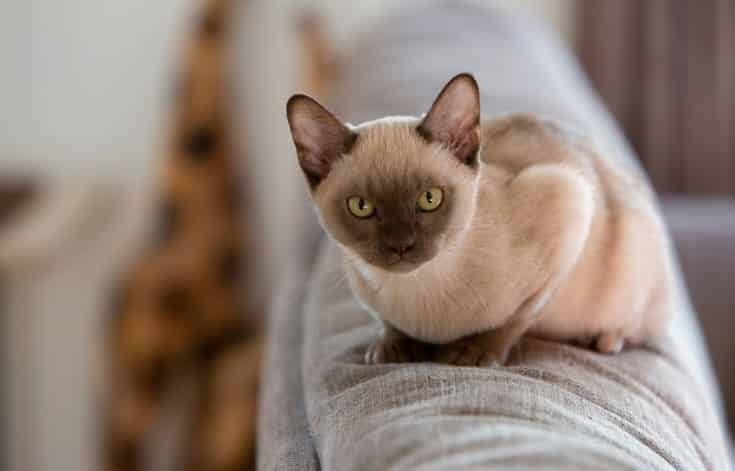Guard dogs are a pretty common phenomenon. Some dog breeds were specifically bred to guard, for instance. Cats—not so much. Cats aren’t as big or scary as dogs.
However, there are a few cat breeds that act like guard cats. Typically, this is due to innate instincts to guard their territory. They don’t like anyone they don’t know entering their space, which may cause them to act like a guard dog would, in some cases. Typically, these breeds can’t be trained as actual guard animals, but don’t be surprised if they exhibit some territorial instincts.
The 10 Best Guard Cats
1. Manx Cat
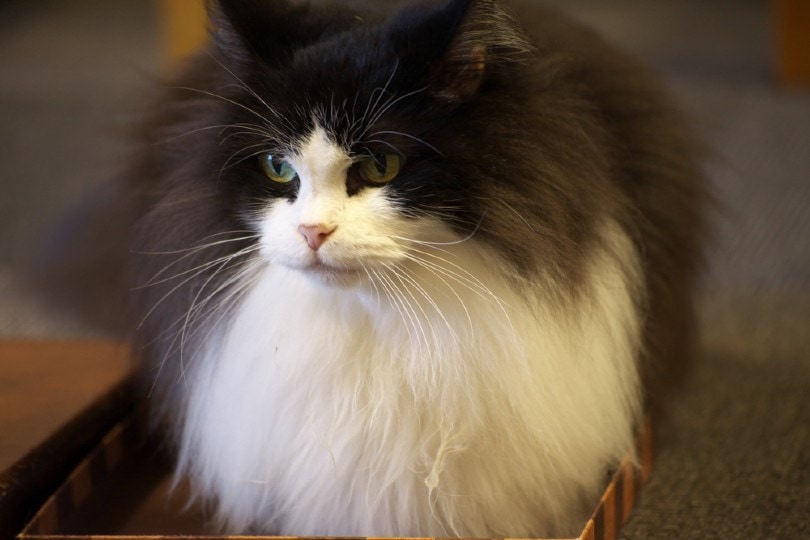
Manx cats are known for not having a tail, which resulted from a rare mutation hundreds of years ago. Not all Manx cats are born without a tail. However, most of them have a reasonably short tail. A Manx litter will have kittens with many different tail lengths.
These cats are often known to act similarly to dogs. They can play fetch and will even come when called. They are quite intelligent and very loyal. Often, they tend to be protective of their family and territory, making them exhibit some guarding behaviors.
2. Burmese Cat

Burmese cats are somewhat similar to a Manx in that they act like a dog. They are incredibly social and intelligent. Many establish close bonds with their owners. They aren’t necessarily territorial, but they are highly loyal and can be protective. This may cause them to exhibit guarding behaviors.
Burmese can be taught tricks like a dog and are often considered one of the friendliest breeds around.
3. Abyssinian Cat
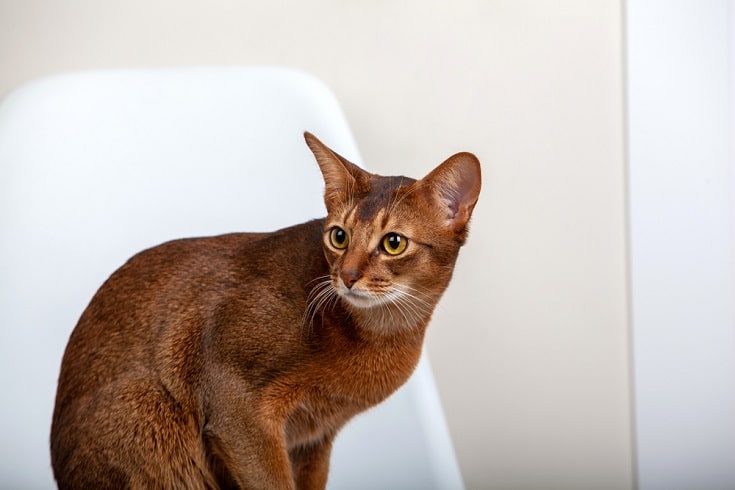
These cats are rare in the States, but it is possible to find them from a breeder. These cats love to explore and climb. They are decently active and love playtime. Many will even play in the water and listen readily to commands. They also enjoy cuddling after they’ve been worn out, though.
Abyssinians are known for following their owner around the house and asking for attention. They can be pretty vocal for this reason. They are also one of the more intelligent breeds out there.
4. Cymric Cat

This loyal companion makes a decent family pet. They are exceptionally protective and territorial. Some are even described as growling similarly to dogs. They don’t like their personal space being invaded, which can be an issue with children. Younger cats who are exposed to children tend to do fine, however.
Cymrics are known for being energetic and playful. These cats can also be somewhat of escape artists and are known for their ability to open doors.
5. Egyptian Mau Cat
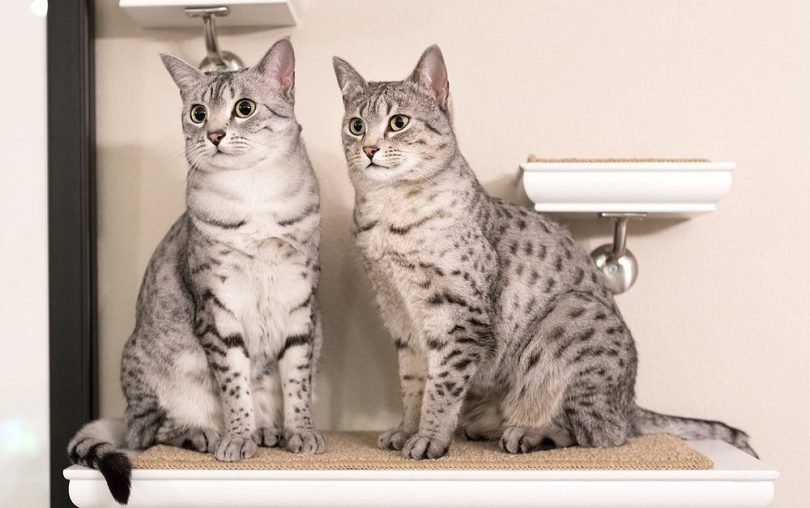
You probably know the Egyptian Mau most for their loud vocalizations. While this cat is quite loud with their family, they can be a bit wary of strangers. They are similar to some dog breeds in this way. They are known for fear-based aggression, which can work well if you’re looking for a guard cat. They often don’t like strangers coming into their space and will act out against them.
These cats don’t even like strangers to touch their toys or food, which is where much of their guarding behaviors come to the forefront.
6. Bengal Cat

This feline isn’t much of a domestic cat at all. Instead, they are a hybrid between a domestic cat and an Asian leopard cat. This breed is exceptionally dog-like. They are known for being social and alert, though it does take them a while to warm up to their owner. They do not get along with strangers very often. They can feel threatened when someone intrudes on their territory, which can make them aggressive.
Bengal cats are probably the scariest guard cats on this list, which is half the guard cat’s job. If you’re looking for a cat to truly guard your home, this may be a suitable option.
7. Korat Cat
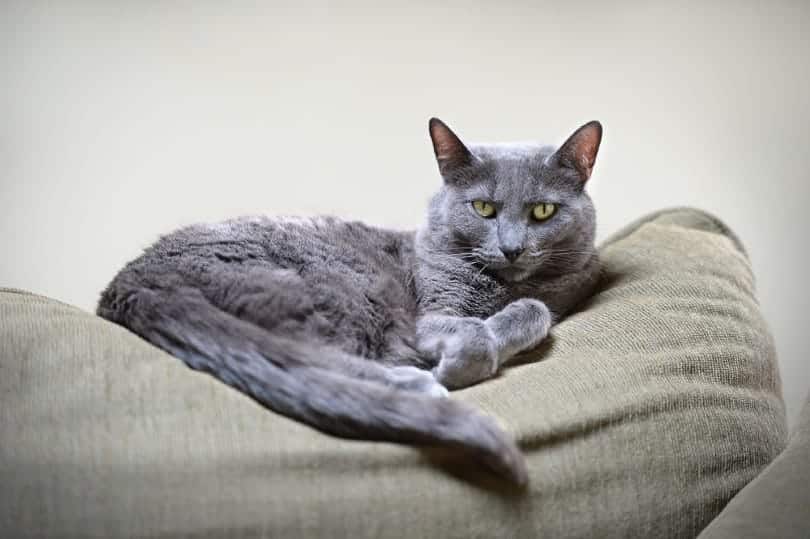
Best known for their silver hair and large eyes, this breed is easily spooked by loud noises and fast movements. They aren’t recommended for homes with children for this reason. They usually don’t like strangers very much either. In most cases, this translates into aggression, though it is fear-based.
Korats will hiss and growl around children and some strangers, especially if they are on the louder side.
8. Turkish Angora Cat
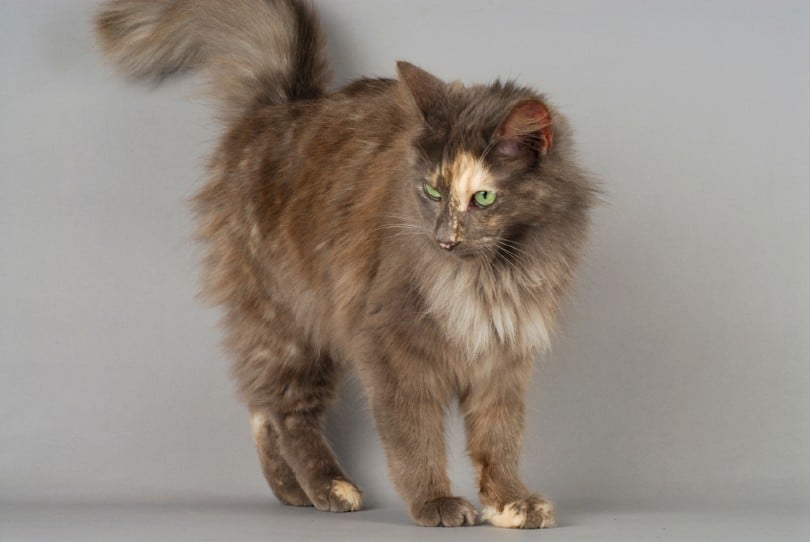
This breed is ideal for older families, though they do get along with children as well. They are known for being affectionate and intelligent companions. Unlike many other breeds on this list, they do make suitable companion animals to families.
Turkish Angoras display lots of dog-like behavior, especially their love of play. Many of them will even take part in games like fetch. They are usually friendly with strangers, but many are also protective of their loved ones. They make great family pets because they quickly adapt to different situations and environments without getting stressed.
9. Ragdoll Cat
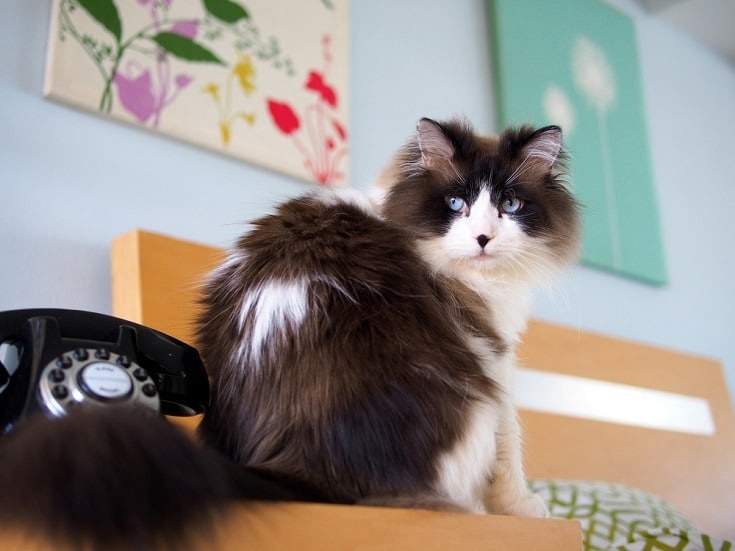
Ragdolls are named after their signature “flop” when they are picked up. They go limp like a doll when held. They are quiet and have a decently laid-back demeanor. Many get along well with children and other animals.
Ragdolls may make ideal family companions due to their affectionate nature. The males tend to be more loving than the females, who can be a bit wary of strangers. These aren’t the best guard cats around due to their friendly nature, but they can be very protective of their people.
10. Maine Coon Cat

Maine Coons are pretty large cats that also tend to be very attached to their people. Most are friendly and do well in households with children and other pets. They are one of the larger breeds around, which may make them suitable for guarding work.
They are brilliant and love playing. Many even enjoy games like fetch. They often follow their owners around and are eager to be a part of the household.
Conclusion
If you’re looking for a cat that acts a bit more like a guard dog, a “guard cat” if you will, then why not give one of these breeds a try? Some of these breeds are a bit harder to find, but they all make great companions. Which one was your favorite?
You might also like:
- What are Police Cats? 6 Interesting Facts
- 7 Skinny Cat Breeds: Top Choices for Your Home (With Pictures)
Featured Image Credit: SeraphP, Shutterstock

